This photograph of a great white shark has gone viral this week and added fuel to the ongoing shark cage diving industry debate. Full article relating to this here.
A number of people have expressed concern over the proximity of the shark to the cage and the way in which the bait appears to have been dragged over the cage and towards the boat. In my own experiences of cage diving with different operators and from working within the industry myself I agree with those concerns.
It is clear to me that the bait is far too close to the cage and no it shouldn’t be pulled over it, ever. I have seen this style of baiting in practice in South Africa and, on more than one occasion, it has resulted in a white shark bumping into the cage heavily as it follows the bait. It is worth remembering that these sharks need space to turn and they cannot reverse. They are large animals and if they are lured close to a cage at a reasonable speed they literally cannot turn in time when they realise a collision with the cage is imminent. It is not the sharks’ fault it bumps the cage in those instances, they have been goaded and lured into doing so, and yes it can harm the shark. Whilst they are indeed physically strong animals they are sensitive to stress and should be treated with more care. Plus it does nothing beneficial for the image of sharks by creating a circus show from them in which the sharks are encouraged to collide with the cage and frighten the inhabitants. All that does is perpetuate the myth that they are monsters of the deep and create fear in people who need to be educated about sharks and encouraged to create a connection with them by experiencing their beauty, majesty and grace.
During my time as crew on a shark diving boat we worked hard to ensure the sharks didn’t bump the cage and they very, very rarely did so. The great news is that is it not rocket science to treat the animals respectfully and all it takes is correct bait handling and experience with the animals. Keep the bait lines long, loose and get to know your shark personalities. We had a shark that got far too excited about our fake carpet seal every time he visited, he loved that thing, yet he was calm around the bait. So what did we do? Simple. We kept the fake seal out of the water whenever he came to visit us and instead let him move slowly around the baits. People loved seeing him cruise quietly past the cage as he gently nosed the bait. Most of the sharks behave that way if they are just left to explore calmly and are not treated like a puppy with a squeaky toy and goaded into over excitement. You don’t need to amp the sharks for them to inspire people with their presence.
The question I have been asked many times is if sharks, thanks to the cage diving industry, associate humans with food. Or in other words, is the cage diving industry responsible for the presence of sharks and shark attacks in the surrounding areas where they operate?
In my experience there is no such association if the cage diving operator works carefully to ensure that is the case – which is what we did. Again it isn’t rocket science to achieve that – which is great news for cage diving operators and ocean users alike. We didn’t feed the sharks, we didn’t ‘chum’ the water and by no means did we turn up, ring the dinner bell and count to ten whilst sharks turned up with their napkins tucked in and looking for a meal. There were days when a shark would arrive before we even had the anchor down, there were days we waited half an hour, there were days we waited three hours and days where no sharks turned up at all. Those all occurred during peak season at a location where the sharks were present every day but not necessarily interested in visiting us. We only saw the curious characters that wanted to investigate what was going on. The sharks are not conditioned to our operations and, as such, we worked to their timetable. If they didn’t want to come and see us, so be it. They are wild animals and we respected that. For anyone that feels strongly opposed to cage diving, I would urge you to spend a day with a responsible operator and ask questions. There are some fantastic operators out there who are working hard to protect white sharks and operate well. Talk to the skipper and crew I and suspect you will find that they care deeply about the sharks they work with. Not everyone treats them like a circus show and my hope for the future is that operators will work together to learn and create best practice methods. I also hope they will share them openly with ocean users, have the important conservations around this topic and provide reassurance that they also have their interests at heart.


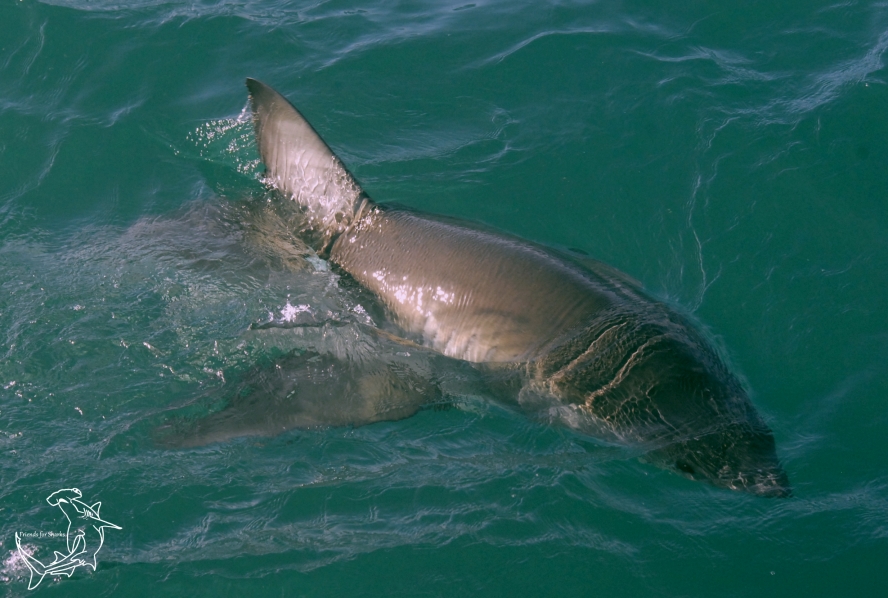

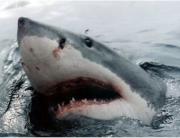
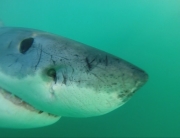
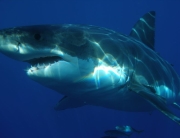
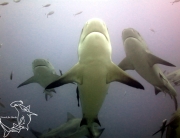
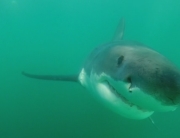










Follow Us